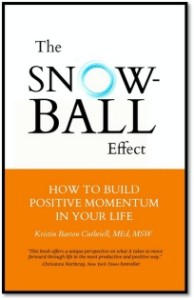 Studies show that explosive anger takes a toll on your health and may even shorten your life. Take a look at the following physical conditions that have been associated with explosive anger:
Studies show that explosive anger takes a toll on your health and may even shorten your life. Take a look at the following physical conditions that have been associated with explosive anger:
- increased risk of heart disease
- high blood pressure
- chronic fatigue
- acid reflux and ulcers
- sleeping disorders
- impaired immune system/higher risk of common cold and other diseases
- chronic headaches
- increased asthma attacks
- skin irritation
Explosive anger not only affects your physical body and can increase the risk of premature death, but it also creates problems in other areas of your life. Explosive anger can lead to the following consequences:
- a stressful work environment
- legal problems
- domestic violence
- isolation from family and friends
- separation/divorce
- raising children who become withdrawn or explosive themselves
- failed relationships/loss of friendships
- incarceration
- unemployment
2 Effective Ways to Manage Explosive Anger
- Know what makes you vulnerable.
- Refuse the invitation.
Know what makes you vulnerable.
It is important for us to know what makes us vulnerable to explosive reactions. Although we each have different things that trigger our intense emotions, depending on our own personal histories, there are certain things that make us all more vulnerable to extreme emotional reactions. Remember the acronym HALTS. When we are hungry or hurried, angry, lonely, tired, sick or stressed, we are more vulnerable to things that trigger an emotional storm. Just knowing this can help. If we eat small meals throughout the day, give ourselves extra time when getting ready, and surround ourselves with supportive people, we will be less likely to have destructive outbursts. If we get enough rest and treat our illnesses, we are also less likely to blow up over something relatively small.
If we are hungry, hurried, angry, lonely, tired, sick or stressed, we need to remind ourselves that we are at risk for explosion. When we are triggered, we can say to ourselves, I have already been feelings out of sorts today, so I know that I may have a tendency to blow things out of proportion. Maybe I need to let this slide. By recognizing our vulnerability, we are better able to prevent our anger from turning into rage, our fear from turning into panic, our sadness from turning into depression, or our excitement from turning into outrageous mania.
Refuse the invitation.
When someone tries to engage you in conflict, you can refuse the invitation. Simply say to yourself, “No. I think that I will pass.” You do not have to allow the problems of others to attach to you. For example, a driver on the highway makes a rude hand gesture at you for no apparent reason. You were having a good day. What is his problem? By refusing to engage, you continue to have a good day. The other driver can keep his problem—it doesn’t belong to you. You do not have to let it become your problem. Let it slip off. You don’t have to let it attach to you. Maybe the other person is trying to trigger your anger, wanting you to engage. Do you really want to give him or her that much power and accept the invitation?
Always be mindful that some people just go around looking for trouble. They are so miserable themselves that they want others to join them in their misery. You do not have to accept the invitation. You can always pass. It is really up to you.
All 13 powerful evidence based techniques to help stop explosive anger along with true stories about people taming their reactions can be found in my new book, The Snowball Effect: How to Build Positive Momentum in Your Life. Available now on Amazon and Barnes and Noble.

Without good advice along the way, it takes years to find these things out yourself.
Very true! Years….
I love that acronym HALTS Kristin. I can certainly relate to the ‘hurried’ one. We can all get stressed to breaking point when put under the pressure of a looming deadline – especially if it is unrealistic. The feeling of hopelessness at trying to achieve something you know to be impossible can be overwhelming. I remember an occasion in the past trying to meet an impossible deadline and the sense of incredible relief I finally felt when I threw my hands up and said “I can’t get this done!” The remarkable thing was that the client putting on all the pressure at the time was very reasonable about it. All the pressure was in my own perception. 🙂
I can relate. I have experienced something very similar. 🙂